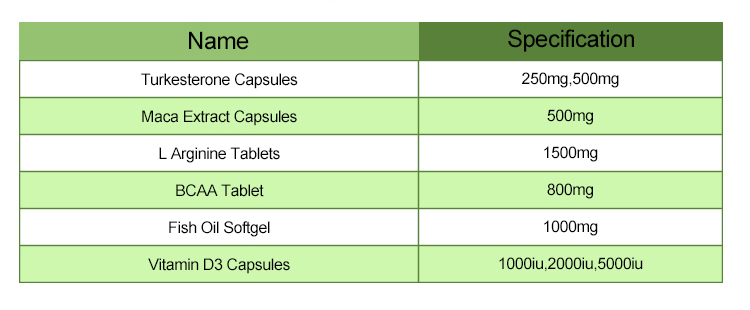L-Arginine Tablets is made of high quality L-Arginine, which is an amino acid compound. L-Arginine is an amino acid that plays a crucial role in various bodily functions, including the production of nitric oxide, which helps relax blood vessels and improve circulation. It’s often used as a dietary supplement for various purposes, including improving athletic performance, enhancing blood flow, and supporting cardiovascular health. Here are some tips for using L-Arginine tablets for best results:
Consult with a Healthcare Professional: Before starting any new supplement regimen, especially if you have any underlying health conditions or are taking medications, it’s important to consult with a healthcare professional. They can provide personalized advice based on your specific needs and health status.
Follow Recommended Dosage: L-Arginine supplements typically come in tablet form, with recommended dosages varying depending on the specific product and intended use. Follow the dosage instructions provided on the product packaging or as directed by your healthcare provider.

Take on an Empty Stomach: L-Arginine is best absorbed on an empty stomach, as food can interfere with its absorption. Ideally, take the tablets at least 30 minutes before meals or two hours after meals.
Stay Hydrated: Drinking an adequate amount of water can help improve the absorption of L-Arginine and support its effectiveness. Aim to drink plenty of water throughout the day, especially when taking L-Arginine supplements.
Consider Timing: Depending on your goals, you may want to time your L-Arginine supplementation strategically. For example, some individuals take it before workouts to potentially enhance exercise performance and improve blood flow to muscles.
Be Patient: While some people may experience immediate effects from L-Arginine supplementation, such as improved exercise endurance or enhanced blood flow, others may require more time to notice benefits. Consistency is key, so continue taking the supplement as directed over the long term for optimal results.
Monitor for Side Effects: While L-Arginine is generally considered safe for most people when taken at recommended dosages, some individuals may experience side effects such as stomach discomfort, nausea, or diarrhea. If you experience any adverse reactions, discontinue use and consult with a healthcare professional.

Combine with Other Supplements (if appropriate): Depending on your specific health goals, you may consider combining L-Arginine with other supplements that complement its effects. For example, some people combine it with L-Citrulline or antioxidants like vitamin C to enhance its benefits.
Evaluate Results: Keep track of any changes you experience while taking L-Arginine, whether it’s improved exercise performance, better circulation, or other desired outcomes. If you’re not seeing the results you expected, reassess your dosage, timing, or overall supplementation strategy.
Remember that while L-Arginine supplements can be beneficial for many people, they’re not a magic bullet and should be used as part of a comprehensive approach to health and wellness, including a balanced diet and regular exercise.
